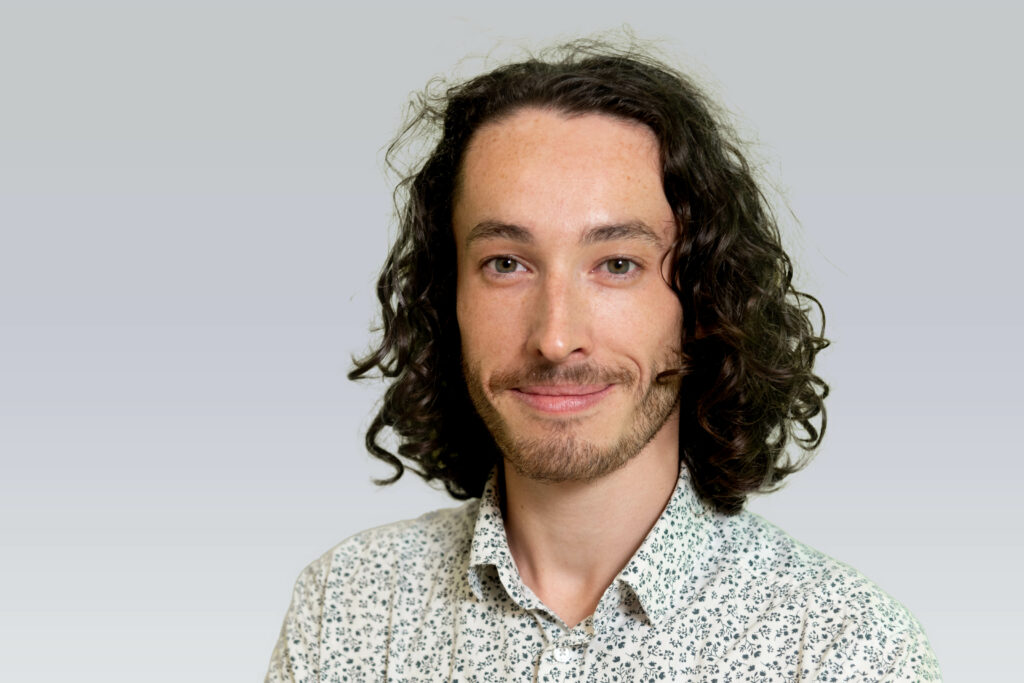The brainers

Gaël Fortin – Doctor in cancerology
With a doctorate in oncology and a passion for popularizing science, Gaël Fortin shares science to make it accessible to everyone. After 6 years of research in the United States and France, and a thesis in oncology, he chose to make scientific communication his profession. He shares science with the general public at conferences, through collaborations, or directly on social networks with his YouTube channel and Instagram account Labologie. He produces short and long-form video content for a variety of audiences, as well as a podcast (entitled 3,9). Gaël Fortin is a member of the popularizer collective L’Exploratoire and the popularizer association Café des Sciences.
This brainer takes part in round-table discussions, offers improvisation sessions and the following solo talks:
Is it a misnomer to talk about vital energy?
All beings have vital rhythms induced by those of planet Earth. Do they change over time? Does high-dose digitized life play a role in human energy regulation or disinhibition? Many psychiatric pathologies express a surplus of energy, in contrast to severe depression, where every step costs, as if vital energy were no longer present. Increasingly, we take into account the patient as a whole. In the case of cancer, this certainly includes its progression, but also how the patient feels, his energy and his mind. Could it be that what patients have always called the “good doctor” is the one with a particular therapeutic impulse? Because if therapy counts, the way it is approached also plays a role.
A brief history of cancer
Embark on an astonishing journey through the centuries on the trail of cancer. From the Pharaohs to the 1980s, via the Renaissance, this lecture reveals the incredible history of cancers. Far from being a modern disease, cancer has been with us since the dawn of time! A scientific and medical epic, reflecting the revolutions that have turned our societies upside down.
A touch of arsenic to cure cancer
A well-known poison, arsenic is now used to treat leukaemia, which was still fatal 50 years ago. How was it discovered that this poison was also a cure? How did this treatment revolutionise the way we understand and cure cancer? This conference tells the incredible story of how this poison became a medicine.
Cancer treatments: latest news from the front line
Immunotherapies, targeted treatments... Cancer research has made unprecedented progress over the last twenty years. In this conference, find out about the most innovative cancer treatments and how they work. What are their objectives? What are the limits? What does the future hold for cancer research? A presentation of the latest advances and prospects in cancer research.